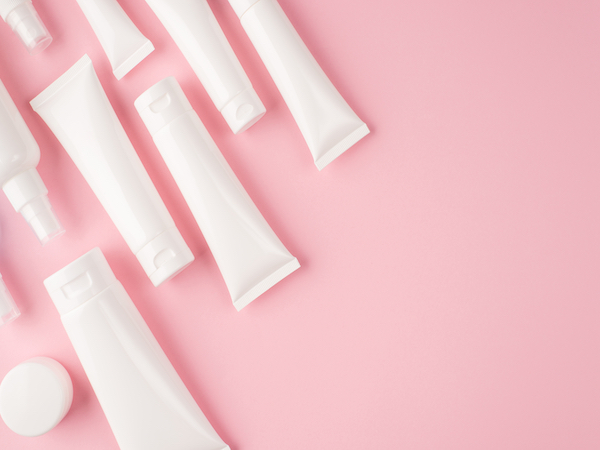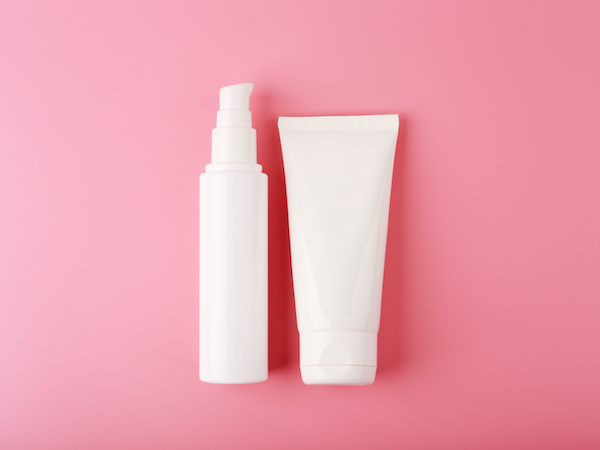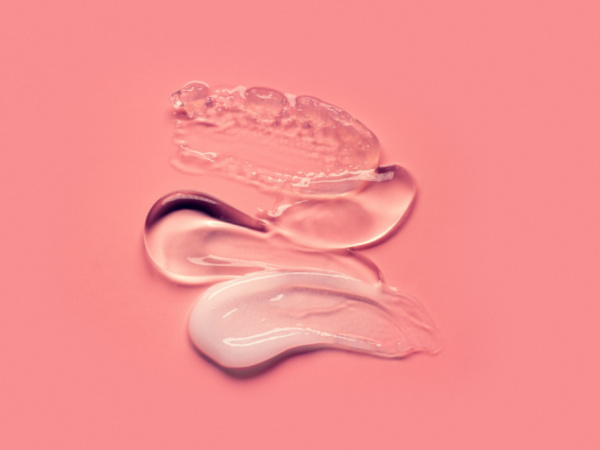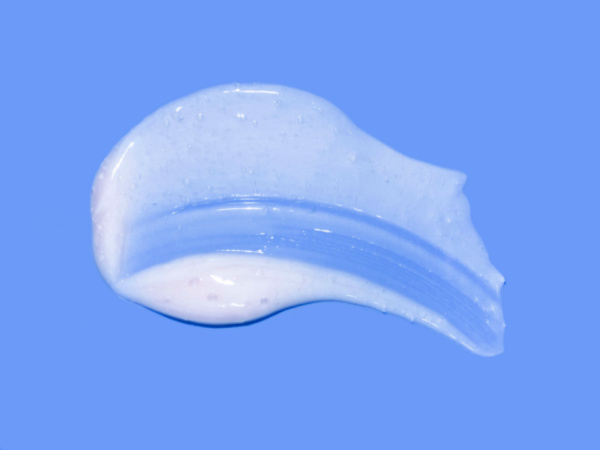A proper skin-care routine is important. We all know this. Some people love a 12-step regime, others head right to the moisturizer and out the door to work. Trying to find the perfect balance can be tough and with so many products out there, nailing down a skin care order can feel overwhelming.
Whether you’re a minimalist with your skin-care products or swear by a full product lineup, the order in which you use them is just as important as what you put on your skin.
We’ve made this handy guide to help you make sense of your skin-care routine and why each product has its place in the lineup.
The non-negotiable products
To get started, there are a few products that are an absolute must in your skin-care routine, even if you’re a minimalist.
Cleanser: It might seem obvious, but using the right cleanser is paramount for healthy (read: happy) skin. During the day, your skin takes a beating with pollution, oils, and even sweat. If you wear makeup, it needs to come off at night to let your skin breathe and repair from the day’s damage. Plus, makeup clogs pores.
There are two types of cleansers:
- Oil-based cleanser: Using oils on your face to clean it might seem counterintuitive, but it all comes down to chemistry. Oils aren’t water-permeable, which means that water will simply sit on the oils and not do much. But if you want to remove oils, you need an oil-based cleanser to get in there and dissolve unwanted oils. Keep in mind that while oil is a great cleanser, if you have oily skin, some types of oil will feel heavy and might clog pores. More oil isn’t necessarily better.
- Water-based cleanser: A water-based cleanser can be used on its own or after an oil-based cleanser. You can also double cleanse or use makeup wipes. It really depends on your skin type. But also, because you should use sunscreen, making sure you take it all off in your nighttime routine is important for skin health. Remember, because water and oil don’t mix, a water-based cleanser will remove dirt and grime from your skin while keeping your natural oils. Water-based cleansers are great for oilier skin.
Moisturizer: A good moisturizer goes a long way and is an absolute essential in a good skin-care routine. Moisturizer will soften and soothe your skin, and for dry skin types, a heavier moisturizer like a cream or balm is advised. For oilier skin types, a fluid or gel is recommended. You might also need to switch up your day moisturizer between summer and winter as temperature and humidity can impact your skin.
Sunscreen: Even if you skip every single step in your skin-care routine (which is not advised!), sunscreen is an absolute must. Sunscreen should be applied only in your morning routine. It helps block harmful rays from the sun that increase your risk of skin cancer and prematurely age your skin. The Canadian Cancer Society recommends an SPF 30 or higher, which blocks 97% of UVB rays.
Daytime skin-care routine
A daytime skin-care routine should be different from your nighttime routine because you need to block harmful UV rays and prep your skin for the onslaught of a busy day.
Here’s a basic routine you can customize to suit your skin’s needs:
Step 1: Cleanse your skin
Start your day with fresh skin. Overnight, your skin will produce oils that need to be cleansed before you apply any other skin care products or makeup.
A warning though: if you cleanse your skin in the shower, make sure you are using lukewarm water. The hotter the shower, the more your skin will dry out. Particularly for those with dry or sensitive skin, this will exacerbate dryness and leave your skin feeling irritated. Not only that, the more you strip your skin’s natural oils, the more your skin will produce those oils. This can lead to breakouts. Not fun at all.
Step 2: Apply a toner
Toners and astringents are formulated to replenish your skin by removing dead skin cells and excess dirt that your cleanser left behind. A toner is recommended for dry skin while an astringent is recommended for combination-to-oily skin.
Step 3: Antioxidant serum
A good serum can be your best friend. Packed with antioxidants and other ingredients, serums will protect your skin against damage caused by free radicals. These free radicals age your skin.
Antioxidants are chemical compounds that can either come in a natural form or be manufactured, and can prevent or delay some types of cell damage. Vitamins E and C are common antioxidants and help improve texture and firmness. Caffeine, resveratrol, and green tea are also often found in serums.
Another key ingredient you should consider when choosing a serum is hyaluronic acid (HA). HA is a key ingredient in helping your skin retain moisture, the loss of which can lead to premature skin aging. HA also helps with cellular repair.
When applying your serum, gently pat it into the skin of your face and neck. Don’t forget your décolletage!
Step 4: Spot treatment
Spot treatment can help with acne and blemishes. Your best treatment will be one with an anti-inflammatory ingredient. The spot treatment step is optional however, depending on your skin type and if you have spots. Prescription retinoid and retinol can also fit into this step.
Step 5: Eye cream
Not everyone is on board for eye cream so this step can be optional. A lot of good moisturizers will have very similar ingredients (and some will be exactly the same). However, because the skin around your eyes tends to be thinner than the rest of your face and neck, it is more prone to signs of aging. Fine lines, puffiness, and dark circles tend to crop up as you age. A good eye cream can help with this.
To use your eye cream, gently dab it under and around your eye. Avoid getting too close to your eyes.
Step 6: Moisturizer
This has already been covered in the non-negotiables above, but it bears mentioning again: a good moisturizer can be your skin’s saviour. Regardless of your skin type, you should always use a moisturizer. Allowing your skin to dry out will only kick it into oil-production overdrive, causing oil buildup, blemishes, and uneven skin tone and texture.
Step 7: Sunscreen
SPF! SPF! SPF! One more time for the folks in the back: SPF! It’s important to use an SPF 30 or higher. SPF is designed to protect the skin and you can think of it like a sealant. Using any products except for makeup after your sunscreen negates the benefits of those products since their beneficial ingredients can’t permeate the sunscreen layer.
Nighttime skin-care routine
Your nighttime skin-care routine is similar to your daytime one with a few minor exceptions.
Step 1: Cleanse your skin
This includes makeup removal with a gentle, oil-based makeup remover. Remember, oil removes oil. Keep in mind that cleansing your skin can be a double-cleanse to remove makeup and sunscreen, or it can be a cleansing plus makeup remover.
Once you’ve done this, use your gentle cleanser to clean away any excess makeup, dirt, and oils that have accumulated during the day.
Step 2: Exfoliant
An exfoliant will remove dead skin cells and decongest pores. For best results, don’t over-exfoliate or you’ll risk irritating or even damaging your skin. A good exfoliant will leave your skin feeling softer and smoother.
Step 3: Toner
You can use the same toner as your daytime routine. Remember, your toner will remove any dirt, makeup, and oils left on your skin after you cleanse. It also provides a moisturizing layer and can help improve skin texture.
Step 4: Antioxidant serum
Just like with your daytime routine, you can use the same antioxidant serum during your nighttime routine. It’s important to replenish your skin with vitamin C and E. Bear in mind that vitamin C is essentially an acid, and can irritate extremely sensitive skin. For those who struggle with acne-prone skin, an antioxidant serum that contains retinol is a great choice.
Step 5: Moisturizer
Of course, moisturizer is essential. Like your daytime routine, you can either choose to use an eye cream with your moisturizer or use your moisturizer as your eye cream. Many moisturizers also include antioxidants and hyaluronic acid.
The major difference between your daytime and nighttime moisturizer is the ingredients. At night, you should use a specially formulated cream that is a bit heavier and helps with cellular repair. A daytime moisturizer is specifically formulated to protect your skin from the day’s onslaught, a nighttime moisturizer will help repair your skin so you’ll be fresh the next morning.
What are retinol and prescription retinoid?
You’ve probably heard the term ‘retinol’ everywhere. It’s referenced in beauty commercials and ads. You see it on labels and have most likely heard about the wonderful benefits of retinol.
That’s because it really is a miracle-worker. Retinol is often (and incorrectly) used as a catch-all term for a family of antioxidant ingredients, and is sometimes confused with prescription retinoid. But prescription retinoid and retinol are different and part of the ‘retinoid’ family.
While retinol is the popular go-to in many skin care products, prescription retinoid has its own benefits. This type of retinoid is available with a prescription and helps smooth skin, reduce dark spots and fine lines, and is a great go-to topical medication for acne sufferers.
There’s nothing better than a healthy lifestyle
It should come as no surprise that even if you have a perfect skin-care routine with excellent products, if your lifestyle is unhealthy your skin will suffer (and you’ll be wasting money wondering why your products aren’t working). The essence of healthy skin comes from within and that means looking after the rest of your body.
Here are some factors that can affect your skin:
Poor sleep: not getting enough sleep has detrimental effects on multiple aspects of your physical and mental health, and your skin is no exception. A good night’s rest helps repair damage and can improve the puffiness and texture of your skin.
Unhealthy diet: salty eats or foods filled with refined sugar can make your skin look tired, dull, and can cause blemishes, not to mention dark circles around your eyes. Turn to foods with ‘good’ fats (omega-3 fatty acids) like many fish, avocados, flax seeds, walnuts, olive oil, and soybeans.
Bonus: omega-3 also has cardiovascular benefits. Some studies have suggested that omega-3 can help protect against neurodegenerative diseases like Alzheimer’s.
Hydrate, hydrate, hydrate: not drinking enough water during the day has a cascade of harmful effects on your entire body, and your skin will let you know. Dry and flaky skin will ensue as will poor skin texture and fine lines. That is because your skin does not have enough water in it to ‘plump’ it up. So break out that water bottle and keep filling it up all day. If you’re travelling, hydration is even more important so make sure you pack moisturizer in your carry on. Check out this guide for more ways to support your skin while flying.
Stress: just like dehydration, high stress can have a detrimental effect on your entire system, from your skin to your mental health, and everything in between. It can lead to premature skin aging, dark circles around your eyes, and sometimes can lead to or exacerbate pre-existing dermatitis. It can be challenging, but reducing stress in your life can help with this. That includes a healthy diet, proper sleep, and drinking enough water. See how it all works together?
Take control of your skin care with Felix
Take control of your skin-care routine by learning about your skin’s uniqueness and understanding that it requires personalized care. Our dedicated team of licensed Canadian doctors are ready to help you. Get skin-care products to complement your treatment, all delivered to your door. Talk to a healthcare practitioner about your options by starting an online visit now.




